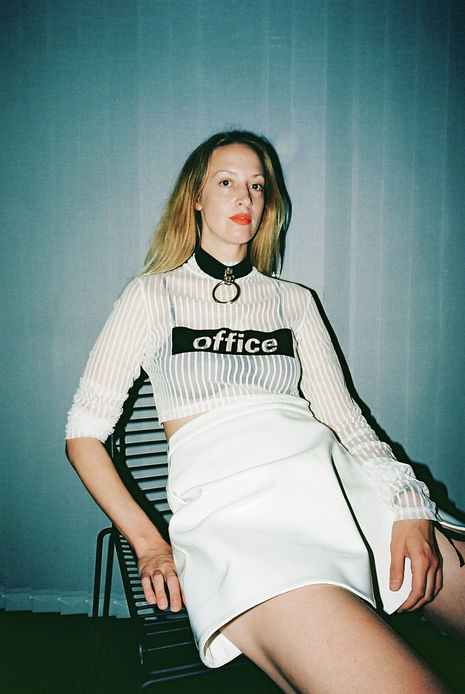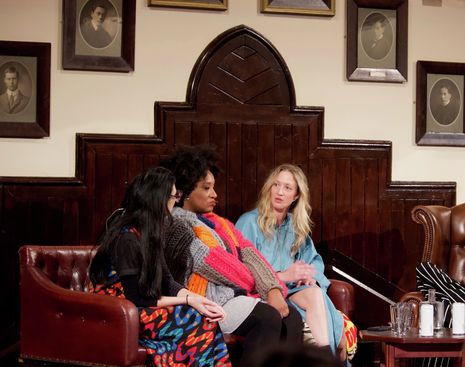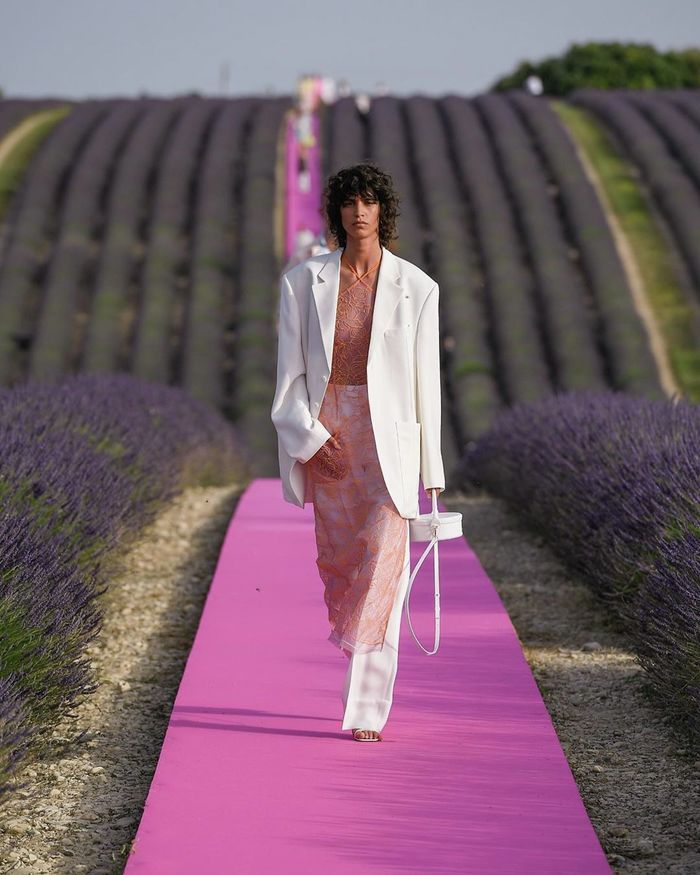Fashion’s fluctuating future in the age of climate change
Caterina Bragoli talks to curator and creator Leanne Elliot Young about the future of the fashion industry in a rapidly-warming world

The once unfathomable concept of sustainable fashion has been edging its way to the fore of mainstream media over the past few years and has, as a result, considerably changed the spending habits of the consumer. Shocking statistics, such as the harsh reality of over 1.2 billion tonnes of greenhouse gases being emitted annually by the fast fashion industry, have played their part in alerting the global fashion market to the errors in their ways.
The work of activists and eminent figures in the fashion world have also allowed this newfound sustainable ethos to become so universal. Stella McCartney, Vivienne Westwood and Spencer Phipps are a microcosm of a much larger movement, but are powerful and necessary vocal proponents of the importance of environmentally-aware fashion, especially as the world faces the destructive consequences of climate change. Only last summer, McCartney’s Winter 2019 campaign cast a spotlight on the effect of fashion on climate change, using the hashtags ‘NoPlanetB’ and ‘AgentsForChange’ to promote the urgent need for action.
It is not just these renowned figures that use their global platforms to usher in change. At the ‘Fashion in the Age of Climate Change’ panel, co-hosted by the Union and Cambridge University Charity Fashion Show (who have decided this year to showcase sustainable brands, in support of the charity ClientEarth), I was introduced to Leanne Elliott Young. Young is a creative innovator in the world of technological fashion, and immediately spoke of the ‘beauty of technology’ to ‘build worlds that don’t have to be physically built’. This echoes the sentiment of her co-founded company, CommuneEast: a ‘vision institute’ promoting a ‘utopian taste of the future’. CommuneEast combines the creative worlds of art and fashion with scientific, mathematical and technological concepts to prompt discussion into ethical possibilities for the future.

‘You’ve got to always go for your idea of what the perfect future could possibly be’, Young explains. For Young, the democratisation of fashion is part of this vision. Allowing people from all corners of globe, whatever their race, religion or gender, to have complete access to the industry is a feat that Young is eager to achieve. CommuneEast recently partnered with ART SCHOOL, which Young credits as a ‘luxury brand that specifically talks to non-binary individuals’. This collaboration saw the production of new Instagram filters during London Fashion Week to allow the runway collections to be seen by everyone, digitally. By working with ART SCHOOL, they are ‘empowering and engaging a new nuance of what fashion, gender and sexuality are’. CommuneEast and ART SCHOOL display that fashion can be innovative, both in and out of the physical realm, and technology plays a key part in that.
Collaboration is fundamental to what Young and CommuneEast stand for; after all, Young believes that ‘collaboration is the key’. One such collaboration is a ‘sustainability project we’re doing with Selfridges’, says Young. In the past, CommuneEast has had a blossoming partnership with Selfridges, holding digitally interactive tours as part of the State of the Arts campaign, to explore the London consumer’s relationship with art. Taking the ‘private view’ and making it a public and immersive experience, various art experts, such as Iwona Blazwick (director of the Whitechapel Gallery), led tours that questioned the relationship that public art has with society today.
Young doesn’t restrict the notion of collaboration to a brand-orientated enterprise. Young believes that ‘It’s not about sales and it’s not about purchase, it’s actually about creating a new future’. It is here that we can call into question spending habits and the sustainable shopping experience. Sustainability is a modern buzzword that has been distorted by many brands into tokenistic advertising. H&M’s Conscious Range, or Topshop’s TS X Considered line, can be misleading: these are notoriously unethical brands that, whilst trying to change their production methods as of late, have been known for producing billions of garments annually: in 2016, H&M were reported to have made between 500-600 million garments annually.
Instead, Young believes we should be re-working the clothing we possess, either through vintage shopping on sites like Depop, which Young describes as an ‘ecosystem of difference’, or by swapping clothes with each other. ‘Old clothes are part of the materiality of you’, Young says, which is why we can collaborate with each other, picking out old clothes that don’t necessarily fit the bill of our current styles, and swap them with people we know. In this way, we are maintaining the endorsement of consistently buying new things, and are passing archived parts of ourselves between each other, which is a heartwarming sentiment.
Young concludes that ‘now the power is in the maker’, and it is designers that hold the power to change the course of fashion production for the better. We should be looking, together, to ‘make a new vernacular of how to create in London’, stepping away from the tireless working days of many members of staff contributing to large scale events like fashion week, and towards a place of fairer trade. Despite the ‘British Fashion Council [being] notoriously difficult to work with’, there has to be a way to change the whole mechanism of production and exhibition. By lobbying to ensure the BFC enact specific environmental policies that would make a large difference, a wider awareness and subsequent implementation of crucial schemes would be achieved. Designers, by shunning fast-fashion practices, assist this massively: follow the policies of production that you would want to see implemented, and others will follow.
By working with fields entirely unrelated to fashion, such as neuroscience and philosophy, CommuneEast are removing themselves from the ‘echochamber’ of the fashion world, and take a ‘really objective viewpoint’. Leanne Elliott Young represents the fashion revolution that once seemed impossible, but is now bursting onto the scene; sustainability is now desirable, marketable and easily accessible. Not only this, but it is the only option we have. Combating climate change can only be achieved once we combat the world’s second largest polluting industry.
Tickets to see the Cambridge University Charity Fashion Show are still available, using this link: https://fixr.co/event/729894833. The show is on Saturday 7th March, and features all sustainable brands.
 Comment / Plastic pubs: the problem with Cambridge alehouses 5 January 2026
Comment / Plastic pubs: the problem with Cambridge alehouses 5 January 2026 News / Cambridge businesses concerned infrastructure delays will hurt growth5 January 2026
News / Cambridge businesses concerned infrastructure delays will hurt growth5 January 2026 News / New movement ‘Cambridge is Chopped’ launched to fight against hate crime7 January 2026
News / New movement ‘Cambridge is Chopped’ launched to fight against hate crime7 January 2026 News / AstraZeneca sues for £32 million over faulty construction at Cambridge Campus31 December 2025
News / AstraZeneca sues for £32 million over faulty construction at Cambridge Campus31 December 2025 News / Uni-linked firms rank among Cambridgeshire’s largest7 January 2026
News / Uni-linked firms rank among Cambridgeshire’s largest7 January 2026









